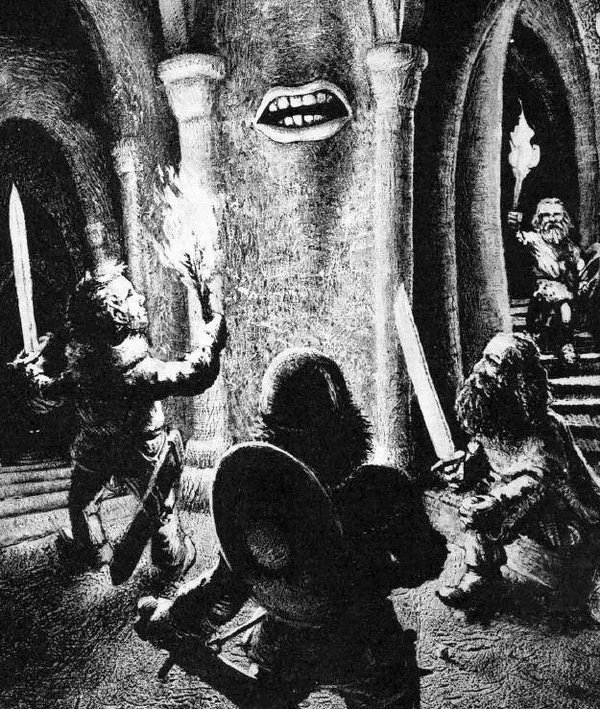Magic Mouth (spell)
Magic mouth conjures a visible, enchanted mouth that magically appears on an object or upon a fixed surface, when a certain trigger causes the mouth to open and speak. To the witness, the lips, teeth and maw emerges as a part of the object or surface; once it's delivered its message, the mouth disappears.
| Range | 5 ft. per level |
| Duration | until discharged; see text |
| Area of Effect | 1 object per level |
| Casting Time | 1 round |
| Saving Throw | none |
| Level | bard (2nd); illusionist (2nd); mage (2nd) |
The object must be inert; it cannot be a living thing.
When casting the spell, the trigger must be specified by the caster, as well as the words of the message. The trigger might require the location to be touched, picked up, passed by, struck in some manner, kissed, breathed upon.
It may be that certain persons or kinds of person that comes within the spell's range sets the spell into action. The caster can be very precise, for example saying, "Speak only when an octogenarian female carrying a sack of groat clusters sits crosslegged within five feet."
Message
The message is limited to 10 words per level of the caster; these are spoken over a period of 1 round per 10 words. They won't be repeated once said, when the spell expends itself.
If the object's destroyed before the spell is triggered, the message is lost. The magic mouth cannot be used as a means to cast spells through the message, though the words of the message could in turn trigger a hypnotic suggestion and other possible magical effects.
Number of Mouths
The caster may create one mouth per level, and no more than one mouth per day. Thus, a 7th level caster would be able to steadily manufacture seven mouths over the space of a week. Thereafter, no new mouths could be cast at all, unless some previously made mouth were dispelled at the caster's will — however, the caster must touch the mouth to dispel it.
As such, the caster decides which mouth to dispel. If no mouth is within reach to be dispelled, the caster must do without. Once a mouth is discharged by some other being, the caster is free to replace it.
